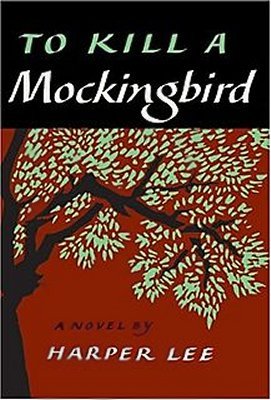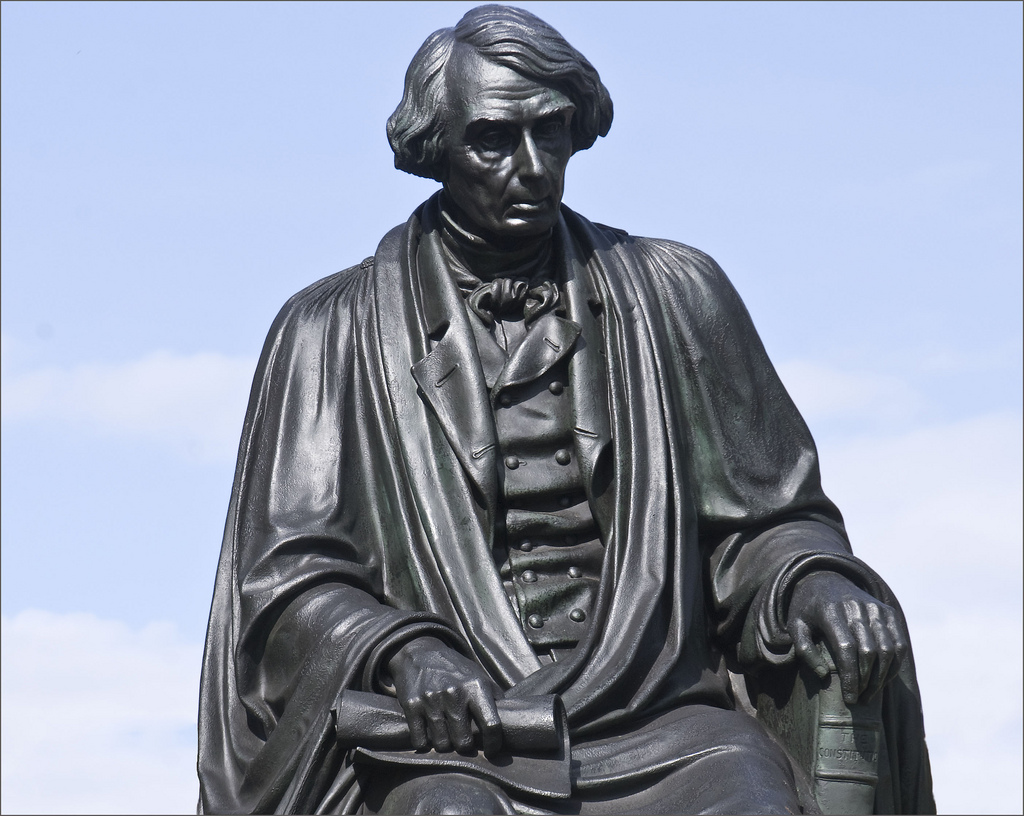
Fitbit Faces Possible Contempt Charge For Admitting What Everyone Already Knows
Mandatory arbitration clauses are designed to gut consumer rights. Apparently, that's news to the court.

Mandatory arbitration clauses are designed to gut consumer rights. Apparently, that's news to the court.

Kerrie Campbell thinks it's everyone's responsibility to challenge blatant inequality.

Share your insights in this brief survey.

If this shows up on your Professional Responsibility issue-spotter then you're in pretty good shape.

No, this isn't too much to pay these lawyers.

The case has gone through many twists and turns, but is resolved at last.

* Winston & Strawn revenue up 19 percent last year after securing a hefty contingency fee in the pink slime matter. Despite their victory, we suspect these lawyers are using their windfall on grass-fed free-range beef. [American Lawyer] * In the continuing war on class actions as a lingering nuisance to our corporate overlords, the Supreme Court may be taking aim at cy pres settlements to "protect the class" by making class actions harder to pull together. [National Law Journal] * The photographer from the horrendous decision ruling that embedded Tweets are copyright violations is fighting an effort by defendants to get an interlocutory appeal to clear up this travesty as quickly as possible. You know, to save the Internet. [Law360] * In an article that manages to avoid any reference to Ready Player One, Rhys Dipshan considers the IP challenges facing widespread adoption of VR and AR products. As an example, the article considers what would happen if someone put that famous picture of Albert Einstein into the game. Perhaps the better question is why isn't that in the public domain and can VR be the technology that finally reverses the broken IP regime Sonny Bono dropped on us? [Legaltech News] * Can California's sanctuary laws survive federal assault? Professor Noah Feldman says they should. [Bloomberg] * Professor Tobias Barrington Wolff considers the sideshow of a career his Penn Law colleague Amy Wax has decided to pursue. [Faculty Lounge]

Legal expertise alone isn’t enough. Today’s most successful firms invest in developing the skills that drive collaboration, leadership, and business growth. Our on-demand, customizable training modules deliver practical, high-impact learning for attorneys and staff—when and where they need it.

* Which Supreme Court justice wrote the most dissents over the last 30 or so years? The answer might surprise you. (My guesses came in second and third.) [Empirical SCOTUS] * Does the latest constitutional challenge to Obamacare have merit? The 20 states are right on one issue and wrong on another, Ilya Somin explains. [Volokh Conspiracy / Reason] * Ann Althouse makes the case against To Kill A Mockingbird. [Althouse] * Litigation finance and class actions: two great tastes that taste great together? Professor Brian Fitzpatrick breaks it down. [SSRN] * Artificial intelligence is all the rage, but what should lawyers actually look for when it comes to AI-enabled products? Daniel Lewis, co-founder of Ravel Law (now part of LexisNexis), offers his insights. [Dewey B Strategic] * As a new dad, I find the notion of prosecuting a parent for improper car-seat installation deeply disturbing -- especially after the defendant mom lost her daughter, an already horrific punishment for that mistake. [Slate] * Has the Trump Administration drained the swamp, or made it more swampy than ever? The latter -- at least if you view Biglaw partners as swamp creatures. [The Nation] * Utah legislators try their hand at "Schoolhouse Rock," and the result is... something. [Twitter (@RobertMaguire_)] * Another interesting use case for blockchain: solving IP challenges. [Artificial Lawyer]

* Only 23 percent of law school grads think their education was worth the cost. That number seems high. [CNBC] * Apparently, judges can't use their office to trade leniency for nude photos. You learn something new every day. [Courthouse News Service] * Professor Epps patiently explains how bad Clarence Thomas is at basic constitutional law. [The Atlantic] * Ogletree slapped with a sexual harassment suit on the heels of a big gender discrimination suit. Somebody over there really needs to learn labor law. [The Recorder] * Just as a recap: Protecting minority voting rights -- not a priority for the DOJ. Challenging a settlement to give people $2 wine coupons -- absolutely a priority for the DOJ. [National Law Journal] * Summer programs are shrinking again, so go ahead and start panicking. [American Lawyer] * Boies is leading a coalition challenging the "winner-take-all" electoral system -- but not the Electoral College itself -- as an affront to "one person, one vote." Because when I think about improving fairness, it's turning over the task of choosing Electors to gerrymandered maps. [Bloomberg] * School superintendent about to get a crash course on basic constitutional law. [Washington Post]

* President Trump ordered White House Counsel Don McGahn to stop Attorney General Jeff Sessions from recusing in the Russia probe -- and Sessions, after not recusing and incurring Trump's wrath, later submitted his signed resignation letter (which the mercurial Trump, who had told Sessions to resign, then declined to accept). [New York Times] * Brazilian oil company Petrobras just announced a $2.95 billion class action settlement, which will be the largest settlement of a class action U.S. securities fraud suit this decade if approved (by Judge Jed Rakoff, so it's not a foregone conclusion). [Corporate Counsel] * Congratulations to litigation finance firm Lake Whillans, which just concluded a $125 million round of funding. [American Lawyer] * Leigh Corfman, one of several Alabama women who accused unsuccessful U.S. Senate candidate Roy Moore of sexual misconduct, is now suing Moore for defamation. [Washington Post] * Speaking of defamation claims, the Trump tax bill contains some very bad news for plaintiffs in such cases (and tort cases more generally, it seems). [Slate] * Tallahassee prosecutor Georgia Cappleman has thrown her hat into the ring for a judicial vacancy; what does this mean for the Dan Markel case, which she's currently handling? [Tallahassee Democrat] * The Motel 6/ICE mess has triggered a lawsuit against the company by Washington State's attorney general. [ABA Journal] * Journalist Roy Strom surveys the year ahead for Biglaw -- and highlights Bruce MacEwen and Janet Stanton's noteworthy prediction of a prominent U.S. law firm forming a joint venture with a "New Law" entity. [Law.com]

* Luke Skywalker's legal duty to save the galaxy. (Spoilers for The Last Jedi.) [The Legal Geeks] * Will the class-action lawsuits against Apple for throttling older phones lead to a resurgence in class-actions? [Law and More] * The latest episode of the Amicus podcast explores how to combat a history of harassment in the judiciary in the wake of the Alex Kozinski scandal. [Slate] * Tracking the use of the phrase "help me" by Supreme Court justices in oral arguments... which is to track the passive-aggressive stylings of the Court. [Empirical SCOTUS] https://www.youtube.com/watch?v=yWP6Qki8mWc * Yup, this is how the President of the United States used his Twitter account in 2017. [The Hill] * Speaking of the President, he teases a Constitutional crisis in an impromptu interview. [Huffington Post] * Could a feminist perspective change the tax code? [TaxProf Blog]

"Decrypting Crypto" is a go-to guide for understanding the technology and tools underlying Web3 and issues raised in the context of specific legal practice areas.

* The Kozinski retirement raises the important question -- where does a clerk go to report misconduct (a question raised in this Lithwick column)? There's now pressure on Chief Justice Roberts to work out a solution. [The Recorder] * Speaking of sexual harassment, the wave of misconduct revelations has lawyers seriously questioning NDAs (something we've written about before here at ATL). [Reuters] * Wondering who the next potential Trump SCOTUS nominee would be? Breaking down the numbers it would seem to be... [Empirical SCOTUS] * Crain's has a list of the 100 Leading Women Lawyers in New York City. [Crain's] * Law enforcement requests for Facebook data are up big time. This is why we can't have nice things. [CNET] * What do general counsel want for the holidays? The same thing they want every year: more service for less money. [American Lawyer] * New suit goes after Blue Apron for its stock price drop. As if they're responsible for Jeff Bezos gutting their market share in Brooklyn. [Law360]

Ed. note: “See Also” is a new column we’ll be running in place of Non-Sequiturs. It’s going to be an evening ATL Digest for people who missed some of our content earlier in the day. We Can Spend All Day Reading Disciplinary Findings Do these ever cease to amaze? No, no they do not. Whether it's a klepto judge or an attorney calling in bomb threats, a quick perusal of the latest disciplinary actions will make you feel better about your professional judgment. That said, you still should delete that Instagram post you captioned, "Buy Globochem tomorrow before 11. But shhh.... it's our little secret. ;-)" Read all about it... Maybe We Don't Let This Guy Do Interviews Next Year? When I was in law school, a partner at a certain Biglaw firm asked a friend of mine who'd gone to Yale undergrad why he was attending NYU for law school. "I went to Yale undergrad and Yale Law School!" this jerk proclaimed. My friend looked at him and said, slowly, "I don't know... why don't you work at Cravath?" That concluded the interview. The firm shouldn't have sent that guy out on interviews. The firm in this story also needs to reconsider their interview roster. Real all about it... You'd Have To Have Permanent Brain Damage To Negotiate This Deal Speaking of dumb things lawyers do, let's have a round of applause for the NFLPA, making yet another effort to challenge the draconian league disciplinary system that they willingly agreed to in the last CBA. Read all about it... Protecting The Profession Over The Client The client is supposed to come first, and yet states are so hell-bent on protecting their parochial guild they make rules that can put clients in a bad spot. As Harvey leaves a desperate need for competent representation in its wake, this is your gentle reminder that the state bar makes out-of-state attorneys jump through hoops to lend a hand. Read all about it... One Brave Soul Breaks From The Pack While there may be a lot of dumb lawyers, one smart legal move comes courtesy of Professor Brian Fitzpatrick, who shuns the conventional wisdom of his fellow conservatives and makes a compelling case for class actions. Sadly, he'll probably be purged at the next FedSoc inquisition. Read all about it...

Get a load of this guy who still thinks harming consumers is bad....

* Statues of Chief Justice Roger Taney may have been removed in his native Maryland, but don't expect his bust to be removed from the Supreme Court's Great Hall or his portrait to be taken down from the high court's East conference room in the near future. The visage of the Dred Scott opinion's author will remain. [National Law Journal] * The Charlotte School of Law may be dead, but that doesn't mean that former students' proposed class-action lawsuits against the school have been put out to pasture. Though the bulk of the claims were dismissed, two such cases with allegations of unfair and deceptive trade practices have survived motions for summary judgment. Best of luck against Infilaw's first fallen school. [Law.com] * Much to his defense attorney Benjamin Bratman's chagrin, the names of the jurors who convicted Martin Shkreli of securities fraud have been released. They've been talking to the press about the disgraced pharma bro, and one of them referred to him as "his own worst enemy." [DealBook / New York Times] * Meanwhile, Martin Shkreli's ex-lawyer, former Kaye Scholer partner Evan Greebel, remains charged with wire fraud conspiracy, a charge on which Shkreli was acquitted by a jury. Greebel's defense attorneys at Gibson Dunn have called this "a Kafkaesque scenario," that is "frightening for every corporate lawyer in America simply doing their jobs representing clients." [New York Law Journal] * Berkeley Law is planning to launch a hybrid online/on-campus LL.M. program for foreign-educated attorneys. Students will be able to complete their fall and spring semesters online, but must attend classes on campus at the law school during the summer months. Tuition is a whopping $57,471. [The Recorder] * Earlier this week, a California jury handed down the largest verdict thus far in a talcum powder cancer case against Johnson & Johnson. The plaintiff, Eva Echeverria, who had used J&J baby powder since the 1950s and was diagnosed with ovarian cancer in 2007, was awarded $417 million. [Consumer Affairs]

She's using her fight against Biglaw as motivation for the next step in her career.